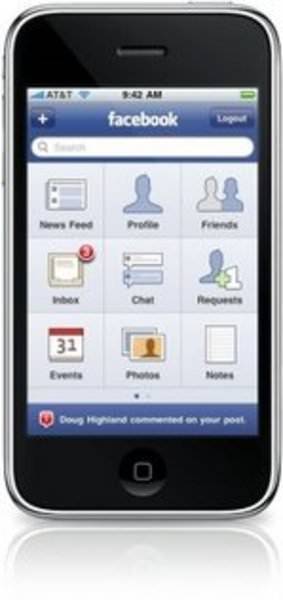Online social networking sites have oftenbeen accusedof separating people from the real world, and providing them with the illusion of connection through virtual relationships which aren’t the equivalent of their offline counterparts. But that’s not actually the case, a new study says. Facebook users actually have more close relationships than non-users, and are more trusting, more politically engaged and get more social support than other Internet users.

The study, performed by Pew Internet and American Life Project, asked 2,255 Americans about their social networking habits. The answers challenge earlier beliefs held by some that social networking via the Internet leads to a separation from real world relationships and real-world concerns, and can even cause isolation.
How People Use Social Networking Sites and Facebook
According to Pew, out of the 79% of American adults using the Internet, nearly half (47%) use at least one social networking website. 92% of these social networking users are on Facebook, 29% on MySpace, 18% are on LinkedIn and 13% use Twitter.
While those percentages seem to imply popularity, that’s not the case. By measuring engagement alone, Facebook and Twitter come out on top, with 52% and 33% of users logging on daily, respectively, compared with 7% who visit MySpace daily and 6% who do the same on LinkedIn.
On Facebook in particular, participation, as opposed to passive consumption, appears to be a common trend. 15% of users update their status on an average day, 22% comment on another’s post or status, 20% comment on others’ photos, 26% “like” another user’s content and 10% send a private message to a friend.
Results of Regular Use: Real Friendships, Emotional Support
This daily use and engagement leads to generally positive feelings among Facebook users, specifically in how they perceive their relationships with others, and the world around them. Facebook users who use the site multiple times per day are 43% more likely than other Internet users to be trusting of others – that is, they feel that most people can be trusted. It’s your typical “glass half full” outlook on life.

Regular Facebook users are also, on average, 9% more close to their friends than other Internet users. And they score higher when it comes to social support than other online users. Pew says they are 5 points higher in total support, 5 points higher in emotional support and 5 points higher in companionship than Internet users with similar demographics. (More study details can be found here).
The study also showed a general increase in the use of social networking services to stay in touch with close friends. In 2008, only 29% of users said they had friended all of their core “confidants.” Today, that number is 40%.
Users tend to revive their “dormant” relationships (high school friend requests, anyone?), too, and these can become important sources of information, even though they’re not active relationships.
Finally, Facebook users are more engaged with politics, no doubt thanks to the numerous political conversations that occur online via status updates and political cause pages.
Conclusions
What this study shows, says Pew, is that there is little validity to claims that people who use social networking sites have smaller social networks, less closeness with others or are exposed to less diversity. In other words, your Facebook friends are real friends because Facebook allows you to mirror your offline connections via the Internet, it does not isolate you from them. It may even enable you to have more close ties, with frequent use.
That said, the study fell short of concluding that it’s Facebook itself that’s actually causing people have these types of close relationships, support networks or impacting their engagement levels with various causes. Americans with deficits in these areas, and who are closed off to other viewpoints, untrusting of others and disengaged with their community and society are not like this because of how they use technology. Instead, these deficits may stem from other factors, like lower educational attainment.
















